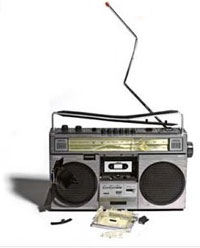If you were recruiting for someone to manage a news organization in 2009, what skills or experience should you be looking for? What would the job description look like? (Since I know nothing about print, I’ll limit my questions to broadcast)
In my experience, most people who make it to “the top,” come from the sales side of the business. The men and women who made their bones in the newsroom occasionally wind up running the show but they are the exceptions. So we’re looking for sales and marketing experience, yes?
Someone who can figure out how to sell the advertising that funds company. Someone who can recruit and train people to sell 30 second radio and TV commercials?
What about this Internet thing? Do our sellers need to know how to sell banner ads (or whatever), too? Or does our manager have to manage two distinct type of sales departments? “Traditional” and online?
Strategically, do we manage the business we have today and hope it lasts a long time? Or, do we try to anticipate what our business will become in three, or five, or ten years? No easy task.
Clay Shirky says the advertising model that has defined and driven news organizations worked because advertisers didn’t have alternatives. Now they do.
But I’m getting away from my original question. Do we need a manager that is real good at “where we’ve been?” Someone with a good handle on where we’re headed? (if such a person exists) Or both? (tall order)
What if advertising –as we have come to know it– plays little or no part in funding news organizations in the future? Uh, let’s not go there. Too murky and scary.
As you can see, I have no answers… just questions. And I’m not sure they’re even the right ones.
Maybe it comes down to finding someone who knows how to build a spaceship, verses someone who knows how to build a bomb shelter. The spaceship has to get us to a very different place. The bomb shelter will protect us for as long as our food and water hold out.

 This is a short but sad story about a once-great radio station. Let’s call it KXXX. It was, for many years, “the voice of” the community. Had as many as four or five full time news people back in the day. This morning one of our reporters called the station regarding a pretty good story in their community.
This is a short but sad story about a once-great radio station. Let’s call it KXXX. It was, for many years, “the voice of” the community. Had as many as four or five full time news people back in the day. This morning one of our reporters called the station regarding a pretty good story in their community.